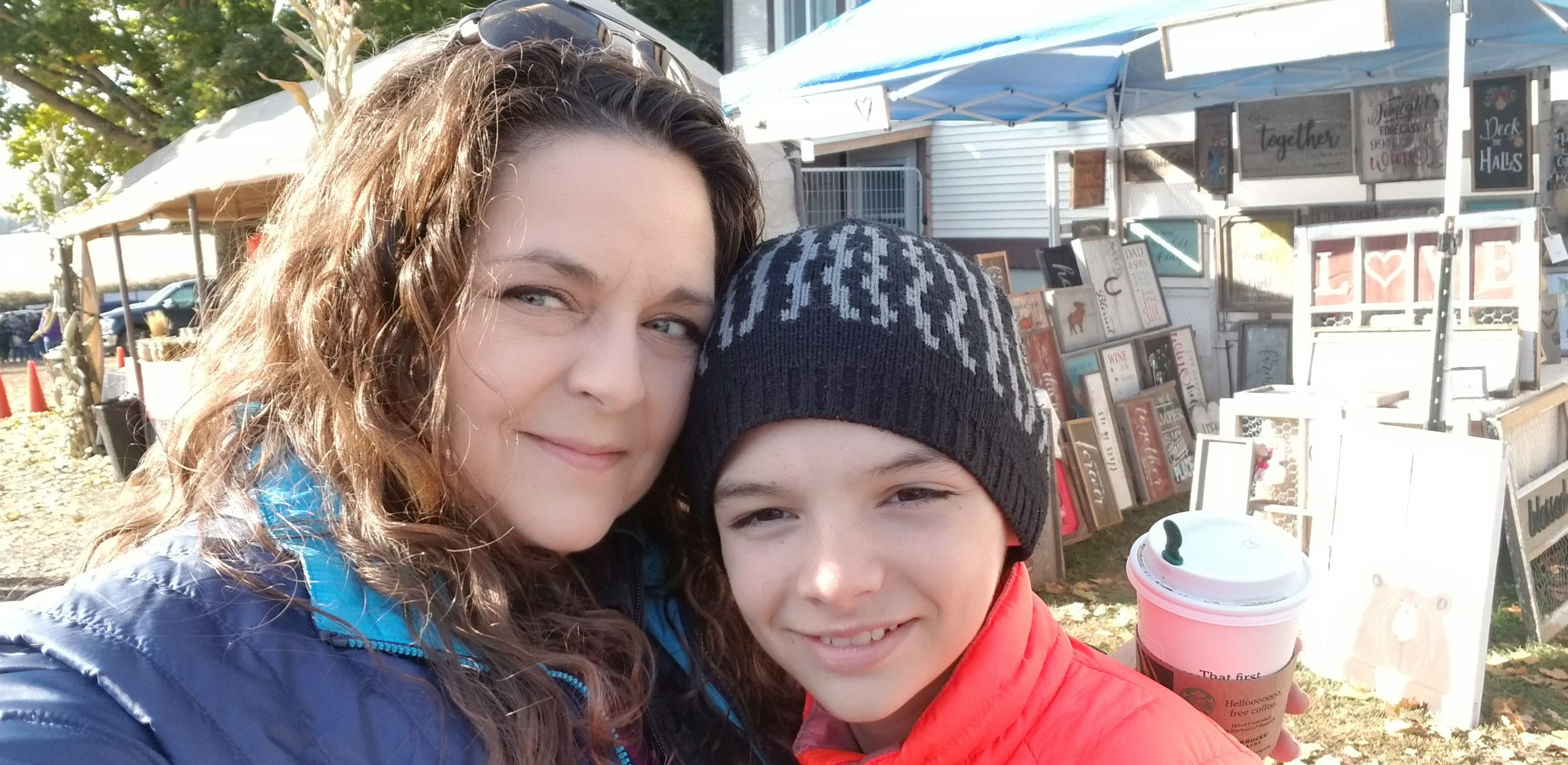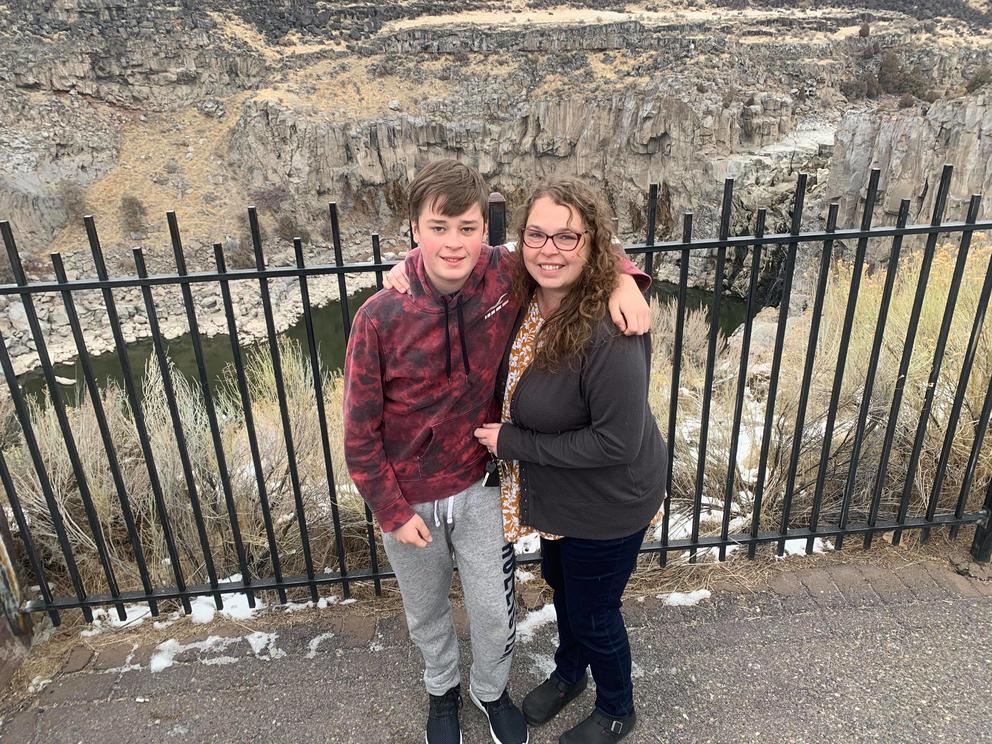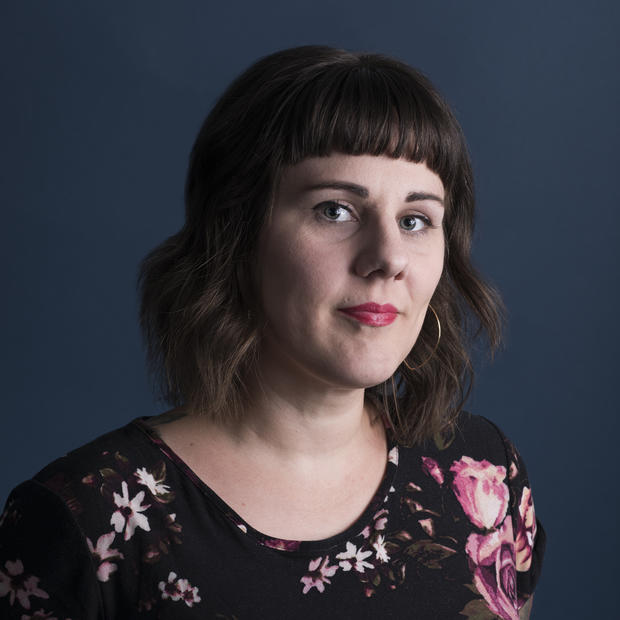Genesis’ mother works in janitorial services cleaning multiple businesses, including some medical clinics. The demand for her job has also increased, James said.
James is retired from the military, where he worked in the medical field. He has also worked as a firefighter and an emergency medical technician. He lives alone; his ex lives with a partner and two other children. That deeply concerns him as well.
“I feel like my biggest concern is that the exposure rate at [the mother’s] house has gone up, where mine hasn't, you know — I can isolate. It's really simple,” he said. “I'm definitely concerned in that aspect of what she does, as far as keeping my daughter safe.”
This story came from reader-driven questions.
He had a conversation with his ex, James said, when Gov. Jay Inslee’s stay-at-home order was announced. James told her he wanted to keep Genesis with him, where exposure was minimal, but his ex disagreed. So, on Monday, Genesis went back to her mother’s.
James was right to follow the parenting plan. Inslee's “Stay Home, Stay Healthy” directive does not negate the plan, said Mike Faulk, deputy communications director for Inslee, nor does it prevent transporting children between homes.
“If there are disputes between parents over legally binding agreements, those disputes would be handled through the appropriate channels in accordance with state law, whether through the courts or other avenues. The [stay-at-home] order does not change that,” Faulk wrote in an email.
More on coronavirus and families: Border closure separates families between Canada and Washington
Faulk has heard from one parent who was worried she would be questioned by police or arrested if she went out to drop off or pick up her kids.
“There is nothing like that in the governor’s order. People are allowed to leave their homes but are encouraged to limit travel,” Faulk wrote.
Washington courts issued a statement March 27 stating that Inslee was encouraging parents to “communicate with one another during this difficult time in order to both maintain family relationships and to protect the best interest and health of each child."
And while that sounds like common sense, divorces happened for a reason: There’s a lot of tension and making mutually agreed upon arrangements isn’t easy. In the end, James acceded to his ex.
“She told me what she’s doing to take protective measures. She’s brought up a whole new cleanliness plan,” James said of his ex. “I have to trust that she's making the correct decision, and I don't really want to petition the courts right now either, ‘cause that's a big hassle.”

And he may not even be able to. Family courts are open for emergencies, but what that means is murky, even for lawyers.
Ken Zigler, a divorce and family lawyer in Spokane, has been hearing a lot of questions from parents about whether they have to follow their parenting plans and what constitutes an emergency when it comes to COVID-19.
But even he hasn’t obtained answers about what constitutes an emergency from the courts. Zigler signed on to a letter with 13 other Spokane-area attorney that asked questions to the Spokane County Superior Court. Defining “emergency” was a top question from all of them.
“There we get to the gray, to the area that we still don’t know,” Zigler said.
He was setting a date for an emergency hearing the following day in which all paperwork was submitted by email to the court’s family law department. It decides whether you can have an emergency hearing. You’re then provided with a commissioner’s phone number, and the hearing is held over the phone, Zigler said. But he was waiting to hear if the case would be heard.
“The court is open for emergencies: We don't know what that means … It's almost trial and error,” he said. “We're all kind of on eggshells a little bit on what we can do and what we can't do, and how do we even know. So we don’t know what we can do with relation to COVID. And that's the biggest problem right now.”
Some courts are taking proactive steps addressing parenting plans head-on, as has been the case at a state district court in Tennessee and a family court in Massachusetts. Most, however, haven't laid down any guidelines. A national group, the Association of Family and Conciliation Courts, provides resources specific to co-parenting during COVID-19 but does not address specific legal ramifications for states.
In Washington state, the courts are part of a nonunified court system, which means they have a great deal of autonomy, said Lorrie Thompson, a communications officer with the state Administrative Office of the Courts. But that can mean a lot of different answers to the same question.
“They have all the same laws and statewide regulations to follow, of course, but in policy areas such as this, there is generally no one state court authority issuing mandates that all judges do ‘this’ on ‘this’ kind of case,” Thompson wrote in an email. “The courts and judicial officers are working through these [parenting plan] issues on a case-by-case basis, using the discretion they have.”
Zigler said that parents can make changes to their plans by agreement, though, without using the court system.
Angela Luckey is doing just that. The 36-year-old lives in Spokane with her 12-year-old son, Evan. The original parenting plan with her ex-husband, which started when her son was 6, dictates that her husband have custody every other weekend, as well as some mornings during the week.
Since the pandemic, that plan has changed about three times. She said she and her ex-husband include Evan in their conversations about custody to make sure he feels listened to and understands why those decisions are being made.
“When we originally started this, we just said, you know what, let’s just lock it down and not see each other,” Luckey said. “Our conversation came about really more on what is healthy for all of us and what is healthy for Evan, my son.”

But after three days, Evan started having a hard time not seeing his dad.
“That really made us rethink, wait — how can we do this different?” Luckey said. So now, Evan’s dad comes over and they go on long, socially distanced walks. She encourages Evan’s dad to call or FaceTime often.
“He doesn’t go over to his dad’s house. They don’t drive in a car together,” she said. “They go out on a walk and they’ll take hours sometimes, just to spend that time together. His dad can call anytime he wants.”
But that healthy communication took a couple of years, she said, from when they first divorced.
“I’m hearing people fighting over like who should get custody and things like that now. I honestly think the encouragement would be, put your child first and keep them safe,” she said.
While they’ve made changes deviating from the original plan, that works for them because they’re able to agree, Luckey said. And that means, for now, Evan doesn’t spend the night or stay with his dad.
“We may have to make some of this [lost time] up, meaning they may get a whole week together right after this whole thing is over,” Luckey said. “We’ll have to see. Right now, we know this is for safety.”
But both parents have agreed: Evan’s health comes first. That means his mental well-being, too.
“He’s a pretty mellow kid and, being an only kid, he doesn’t have a lot of outlets — no siblings and stuff like that,” she said. “So the fact that he’s been as resilient as he has so far, I have to admit, I’m pretty impressed.”
Parents without official parenting plans are also having to navigate these uncertain waters.
Sally McLaughlin, a 36-year-old mother of a teenage son, Clover, lives in the Spokane Valley, where her son's father also lives. Because the two ex-partners were never married, they do not have a legally binding parenting plan. They began the process of creating a custody arrangement for their son when they split over a decade ago, using free legal clinics. But in the end they couldn’t afford to file the paperwork with the courts. It works for them now, McLaughlin said, but if her ex didn’t agree, the onus would be on him to pursue an official plan.
They follow a loose plan where Clover sees his dad about once a month. She was initially concerned with Clover’s safety, she said, and his father was argumentative. But in the end, both parents agreed that Clover would stay with McLaughlin.
“His dad is still working. His partner’s still working. I know that they’ve gone to the grocery store multiple times in a week,” McLaughlin said. “I feel better that we’re just not seeing them anymore at all and knowing that my son’s not going to be there.”
McLaughlin said it’s been about six weeks since Clover has seen his dad, and it’s been emotionally challenging for him. She said, ultimately, parenting plans are about the kids, and she wants to be diligent about Clover’s mental health.
“Clover was really upset when I told him he wasn’t going to his dad’s. … It’s harder for kids to understand than it is for an adult,” she said. “I just made sure to take extra care and let him know that this was really about safety.”






